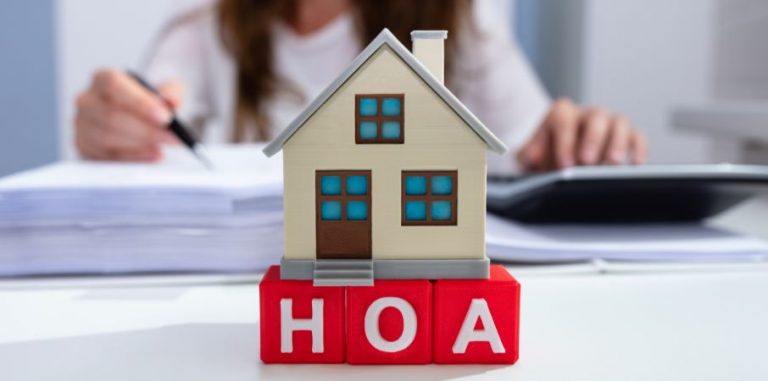Investing in rental real estate is an exciting and challenging venture. It takes both strategy and, sometimes, some good fortune to be successful.
When dealing with rental properties, there are three key factors to consider:
- When to buy
- Where to buy
- When to sell
All three are equally important and extremely dependent on one another.
So, today, we thought we would spend some time talking about a question we’ve gotten from some of our Owners:
“When is a good time to sell my Indianapolis rental property?”
Now as we’ve mentioned in other blogs, there is no one size fits all answer to most real estate related questions, and this one is no different. It very much depends on your investment goals and your unique situation.
However, having worked with hundreds of different Investors since 2000, our experience has shown there are 6 keys factors to consider when deciding to sell your rental property.
DOWNLOAD: eBook “Selling Your Rental Property with T&H”
HERE ARE 6 SIGNS IT MAY BE TIME TO SELL YOUR INDIANAPOLIS RENTAL PROPERTY:
1. If your property has consistently negative cash flow
Before purchasing an investment property, you should always run the numbers to see what kind of cash flow you can expect. It’s wise to be conservative in your estimates so that way you have some cushion in case you run into any cash flow problems.
Inevitably, if you are a Landlord long enough, you’ll have a major financial set-back… an eviction or a large maintenance issue such as a new furnace, roof, etc.
However, if you are losing money every month, it may be time to re-evaluate your situation. There are a number of things that can cause your cash flow to decrease and it’s not necessarily anyone’s fault.
It could be increased property taxes, rise in insurance prices, or a drop in market rents. We always encourage investors to not over-react to a particular month or even a particular year. Real estate is a long-term proposition. However, if after 3-5 years you’re consistently not breaking even or seeing any positive cash flow, it may be a good time to sell your rental property.
2. If the property is worth substantially more than what you paid for it
This is the #1 hope for anyone investing in real estate. That one day, the property will be worth more than you paid for it – A LOT MORE, ideally. Typically, particularly in Indiana, you need to hold onto a property for a long while before the appreciation starts to amount to anything.
There’s no magic formula, but generally you would want to hang on to it for a minimum of 3-5 years. There really is no black and white method though. We’ve seen Owners sell a house after 3 years that got more appreciation than one who sold after 8. It really just depends on when you bought it, where it’s located, and what the market is doing now.
It’s important to remember that Indianapolis is not a high appreciation area. It’s a steady and stable market with relatively small changes.
Investopedia has a great resource for calculating your home’s equity.
One method that not enough investors use is a return on equity model. This basically takes the annual net cash flow of your property divided by the equity in the home. Set a benchmark for what return you want on your equity, and then sell the property when the return gets too low. The idea is then to use that money to reinvest in additional properties and start your return models again.
Important: It’s critical to understand that after taxes, closing fees, agent fees, etc., that your net gain will be considerably less than your selling price. It’s best to work with a Realtor to determine how much you will actually make off your property. Here’s an example of that:
If, after doing all the calculations you’re happy with what your return will be, then it may be a good time to sell your property.
3. If your property has major impending repairs
Most property Owners and Managers would probably agree that maintenance is one of the most difficult and costly parts of owning rental real estate.
In fact, we’ve found that many Landlords don’t understand the impact it can have on your bottom line if you’re not properly prepared. If you’re in that boat, it’s OK. You’re not alone. The thought of having to replace a roof or install a new HVAC system can be extremely overwhelming for anyone. That’s a lot of money.
If you choose to sell a home with deferred maintenance, you will most likely have to cut the asking price accordingly. After all, you can’t hide the fact that an HVAC system is 25 years old or that the roof is falling apart, nor should you try.
If you find yourself in this situation, and you don’t have the additional funds to make these large repairs, it may be best to just cut your losses and sell the property.
4. If it’s a strong seller’s market
Real estate markets fluctuate from year to year, and even month to month in some cases. There are tons of economic factors that are responsible for this change and it’s up to you to find the best time to capitalize on your investment.
If you’re ready to sell, make sure you aren’t selling yourself short by selling in the wrong year or wrong season. Make sure the market is in your favor. The best thing you can do is consult a real estate professional. Someone who knows your specific market in and out and can guide you on when may be the optimal time to sell.
Google can be a great resource and provides a lot of good research and data, but sites like Zillow are rarely, if ever accurate when pricing homes, so you should never solely rely on the internet. Nothing can beat the intuition and knowledge of someone who has spent years in the field, monitoring trends.
If after speaking with an agent it seems to be a seller’s market, it may be a good time to sell.
5. If there are negative changes in the neighborhood
There are many things that can affect the neighborhood that your property resides in. While it may have been a prime area when you invested, it could be a completely different place in 5 years and vice-versa. Investors who took a risk on the Fountain Square area in Indianapolis a few years ago, for example, are now being rewarded by soaring home values. It’s hard to predict how a neighborhood will change over time.
One thing you should pay attention to is crime rates. Are they rising? What type of crimes are most prevalent? Almost no one will want to rent your house if the neighborhood is notorious for break-ins or muggings. NeighborhoodScout is a great resource for monitoring crime.
Secondly, keep an eye on the condition of the surrounding houses. Do they look presentable? Are they being maintained? A run down house can be a huge income killer.
No one wants to live next to a filthy building or yard. If you’re an out of state investor, it may be difficult for you to keep tabs on this, that’s why it’s important to have a Property Management company that you trust that can do it for you.
Another thing to think about is the school district your neighborhood falls in. That is one of the biggest factors renters will use when choosing a place to live. Pay attention to what the schools are doing, have they been in the news for anything negative recently? Are they losing funding? You’ll want to keep an eye on how the schools are performing overall.
A good rule of thumb is, if you would live in that neighborhood, then it’s probably a good investment. If you wouldn’t, then don’t buy property there.
If you start to notice any or all of these things happening, it may be time to sell your rental property.
6. If you just don’t want to be a Landlord anymore
This is probably the single most common reason we get for Owners wanting to sell their properties. For whatever reason, and there are plenty, you just don’t want to be a Landlord anymore and there’s nothing wrong with that. It gets tiring, life changes, your investment goals are met. The list could go on and on.
We often refer to this as the “hassle factor”. When you just don’t want to deal with everything that comes with the territory, when you no longer want to treat it as a business, then it’s probably a good time to sell your rental property.
If you do decide to sell your rental property, here is one major factor to consider:
- Tax liability –
Taxes may be the bane of everyone’s existence but you cannot ignore them, especially when it comes to selling your rental property. You need to be aware of several tax issues as they will affect your return.
First of all, you need to be prepared to pay taxes on your net return, this is called Capital Gains Tax. The amount you will have to pay depends on how much you make on the sale, how long you’ve owned the property, the amount of depreciation you have claimed, etc. Asset Preservation Incorporated has a very handy Capital Gains Tax calculator that can help you determine what you may owe.
In some cases, this tax can be 15% or even 20% of your net return. That’s a huge chunk of
And, obviously, tax laws are subject to change, so be sure to stay on top of things by consulting either a real estate professional or your CPA.
There are a couple of ways you can help offset or delay paying this tax, however, and one of them is with a 1030 Tax Deferred Exchange. This nifty loophole given by the IRS lets rental property Owners sell their investment and use the funds to buy a similar investment property without having to pay Capital Gains Taxes for that tax year. If you’re looking to stay in the real estate business, then this could be a great option for you.
If you’re trying to wash your hands of being a Landlord, then you can also offset some of this tax cost by turning your rental property into your personal residence. In order for this to take place, you have to have owned the property for 5 years and lived in it for at least 2. In most cases, when you sell a primary residence, you get much better tax benefits than when you sell a rental property so this could be a way for you to avoid paying the large tax amount.
Note: T&H Realty does not claim to be a tax expert and only provides this information with the intent to educate. We advise all readers to consult a tax professional before acting on anything talked about in this blog.
One last question you may have is:
“What happens if there are tenants living in the property when I want to sell?”
This can be a tricky situation and there are a couple different ways you could handle it.
In most cases, a home is worth more if the Tenant has moved out, the home has been refreshed and is move-in ready. A home in this condition will attract the widest range of buyers and will likely command a higher sale’s price.
In Indiana, Tenant’s rights prevail, meaning that if you place a property for sale, the Tenant doesn’t have to move (regardless of who owns it) unless otherwise agreed upon in writing. In this case, people who might be interested in buying your home to live in, will not find your property appealing. So, your best market is Investors, who may not be willing to pay as much as an owner-occupant.
As we always suggest, consult a real estate professional about your specific property. It may make sense to wait until the Tenant vacates to sell, or it may make sense to sell it Tenant-occupied.
Here are a few quick tips when selling a Tenant-occupied property:
- Ask if the Tenants want to buy the home
Why not ask them first? If they’re interested, it could possibly be the easiest and quickest sale process ever.
- Work with the Tenants
Not everyone has the luxury of waiting out a lease. If you need to sell as fast as possible, then you’ll have to work with your Tenants to figure out a solution. This could be a breeze or it could be a nightmare depending on how cooperative your lessees are. You may have to offer them incentives to keep the home in tip top shape and you’ll have to get approval for showings at least 24 hours in advance.
- Wait for the lease to expire
If you’re not on a time crunch, you could just wait for the lease to expire and begin the selling process once the Tenants vacate. Generally speaking, you should be able to get more for the home when its vacant and when a lease is not in place, since you’ll open your market to owner-occupants.
- Market the property to other Investors
To an Investor, a Tenant occupied property could be a gold mine. It means less work for them and no vacancy time. Although it’s a smaller niche to go after, it’s a solid option.
Trulia has a great article that talks more about how to sell a tenant occupied property.
Ideally, it’s best to wait until your property is vacant to try and sell it. You can usually go for a higher asking price and you have a wider market to appeal to. But, if that’s not an option for you, then hopefully some of these tips will help with your situation.
In conclusion, when it comes to selling your rental property, there are many things to consider:
- Appreciation
- Taxes
- Neighborhood
- Cash flow
- Equity
- Market
The list could go on and on.
Again, there is no straightforward answer to “when is a good time to sell my rental property?” You have to evaluate your investment goals, your unique situation, and all the outside variables that will affect your decision. The best thing you can do is hire a professional that has your best interest in mind to help you through this process and hopefully guide you to a profitable outcome.
By following these guidelines, you should have a good chance of successfully selling your Indianapolis rental property.
If you would like to speak to a seasoned real estate expert, we can arrange that.











